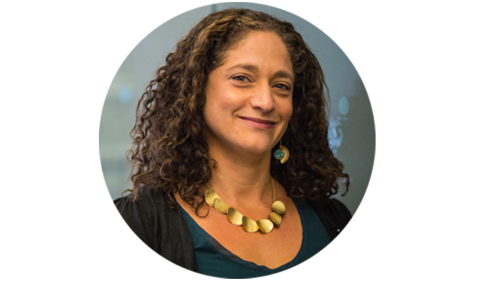Housed in NYU Steinhardt, the Learning Analytics Research Network (LEARN) creates a nexus where research and practice meet, serving the greater University with timely, data-based feedback tools to improve education.

“Instead of traditional educational research, which often only has real-world impact farther down the road, LEARN focuses on using data in a short-cycle turnaround,” said Alyssa Wise, LEARN director and associate professor of learning sciences and educational technology. “The tools we develop with faculty and students provide information that allow them to pivot their teaching and learning quickly – often in real time – and make changes right away.”
Through funding from the Provost’s Office and Steinhardt, LEARN collaborates on projects to improve education throughout the University. They have engaged in substantial partnership with the Information Technology Teaching and Learning with Technology (TLT) group around their instructional support dashboards, which are designed to help inform faculty on their teaching and course design.
Tools to Support Instructors’ Teaching
Using the instructional support dashboards, faculty can see information about how students engage with course materials and assignments to understand what is working effectively and what could be improved for future iterations of the course. Instructors can also confirm hypotheses about learning and make more informed decisions about teaching.
Since TLT rolled out the dashboards in 2018, LEARN has conducted research to understand how NYU instructors use the tools and how they can be improved to better serve their needs. This has helped inform updates to the dashboards and services provided to instructors to support their use.
The instructional support dashboards are a highly comprehensive set of tools, but when the pandemic arrived in spring 2020, the TLT group and LEARN recognized a need for simpler analytics reports that would allow faculty to easily understand how their students were doing as NYU quickly pivoted to remote learning.
The result was the Course Engagement Report – a rapid response analytic report for teaching in the time of COVID-19 that was created and launched in just a few months. Simple, secure, and personalized, the Course Engagement Report gave faculty a high-level view of what percentage of students in each of their classes were active in the course on a weekly basis, as well as engagement trend and tool usage information.
At the end of summer 2020, 1,100 faculty were surveyed to find out their response to the Course Engagement Report. More than two-thirds of respondents said they viewed their reports each week, with 20 percent saying they used the data to inform their teaching decisions. In total, more than 3,300 faculty received a Course Engagement Report between summer 2020 and summer 2021.
LEARN has also applied predictive modeling techniques to help instructors anticipate which students are likely to struggle in large introductory classes and offer insight into the reasons why. For example, a recent project with “Introductory Calculus” found lack of prior preparation in algebra to be the most important signifier for probable difficulty in calculus and led the instructor to develop a special set of algebra support materials that could be provided to students identified to be in need.
Collaborations to Help NYU Students’ Learning
Outside of their ongoing collaborations with TLT, LEARN is also working with other partners across the University to develop more targeted analytics.
One project with NYU Dentistry innovates new reflection analytics. As part of their preparation to become thoughtful practitioners, dental students are asked to write periodic reflections about their courses, developing competencies, and the overall process of learning to become a dentist. Using machine learning and natural language processing techniques, LEARN is developing a tool that can provide students with key feedback on different elements of their reflections using artificial intelligence. This tool will be used to help NYU dental students develop robust reflective skills as they prepare for patient-centered dental careers.
LEARN has also developed a number of other analytic tools for students, such as a presentation feedback systemthat uses sensor technology to provide students with feedback on their body position and speech patterns to help them improve their basic presentation skills. Beyond individual learning constructs, LEARN is also developing tools that provide collaboration feedback to students and other groups or teams.
Learn More about LEARN
To discover more about what LEARN does, check out their projects and publications.
